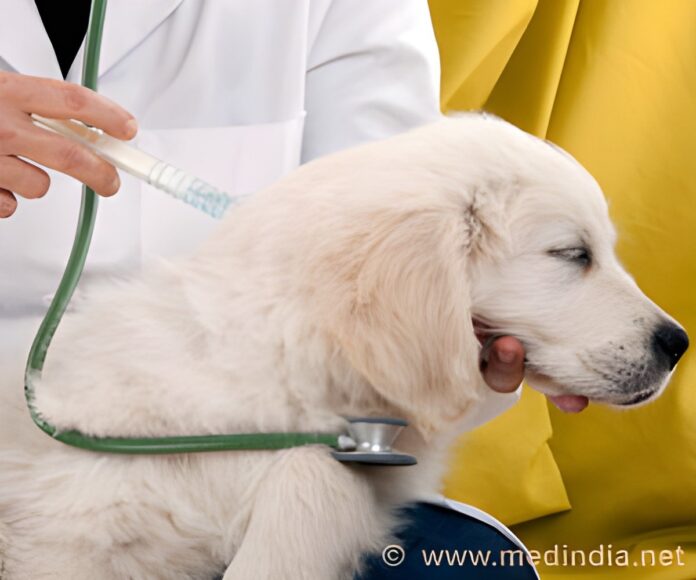Common dog diseases include parvovirus, distemper, kennel cough, rabies, and Lyme disease. Early detection and vaccination help prevent serious illness.
A sharp rise in cases of canine parvovirus, a highly contagious and potentially fatal disease affecting dogs, has set off alarm bells in animal shelters and veterinary clinics across several regions of the United States, including the Ozarks and parts of Illinois and Missouri.
Shelters are working around the clock to contain the spread of the virus, which primarily targets puppies and unvaccinated dogs. Known for its sudden onset and aggressive symptoms, parvovirus can lead to severe gastrointestinal illness, dehydration, and even death if not treated promptly.
Understanding Canine Parvovirus
Canine parvovirus, or “parvo,” (1✔ ✔Trusted Source
Parvovirus infection
Go to source
) is caused by a virus that attacks a dog’s gastrointestinal tract and immune system. According to veterinarians, symptoms often include vomiting, diarrhea (often bloody), lethargy, fever, and loss of appetite. The virus is especially dangerous because of how easily it spreads—through direct contact with an infected dog or contaminated surfaces, including food bowls, soil, and human hands.
“Parvo is extremely resilient and can survive in the environment for months. That’s why outbreaks can escalate so quickly if we’re not careful,” explained a local veterinarian quoted by WGEM in Illinois.
The Ozarks region, in particular, has seen a spike in reported cases over the past few weeks, prompting shelters to ramp up disinfection efforts, isolate infected animals, and remind the public of the importance of vaccination.
Shelters Step Up Prevention Measures
To combat the rising threat, local shelters are implementing emergency protocols, including:
- Quarantining new intakes before mixing them with the general shelter population.
- Thorough cleaning routines using disinfectants proven to kill the virus.
- Public awareness campaigns urging pet owners to vaccinate their dogs.
At Missouri-based shelters, staff are also partnering with local veterinary clinics to host low-cost vaccination drives, especially targeting high-risk areas where vaccination rates are low.
“It’s heartbreaking to see young puppies suffer from something preventable,” said a shelter worker in the OzarksFirst report. “Education and vaccination are our best weapons.”
Pet Owner Responsibility is Key
Health experts and animal advocates are urging pet owners to act swiftly and responsibly. Dogs should begin receiving parvovirus vaccinations as young as 6 to 8 weeks old, followed by booster shots as recommended by veterinarians. Owners are also advised to avoid exposing puppies to unfamiliar environments—like dog parks or pet stores—until they are fully vaccinated.
A guide from the Highland Post emphasized the importance of recognizing symptoms early. Prompt veterinary intervention can significantly improve a dog’s chance of survival, as treatment usually involves hospitalization, IV fluids, antibiotics, and intensive care.
While canine parvovirus remains a serious threat, it is entirely preventable through vaccination and hygiene awareness. The rise in recent cases has served as a wake-up call to communities, shelters, and pet parents alike. “Parvo is not just a shelter issue—it’s a community issue,” said one volunteer. “By staying informed and proactive, we can protect our dogs and stop the virus in its tracks.”
As cases continue to rise, local health authorities and shelters are urging dog owners to check their pets’ vaccination records and contact their vets for updates.
Reference:
- Parvovirus infection – (https://www.mayoclinic.org/diseases-conditions/parvovirus-infection/symptoms-causes/syc-20376085t)
Source-Medindia


